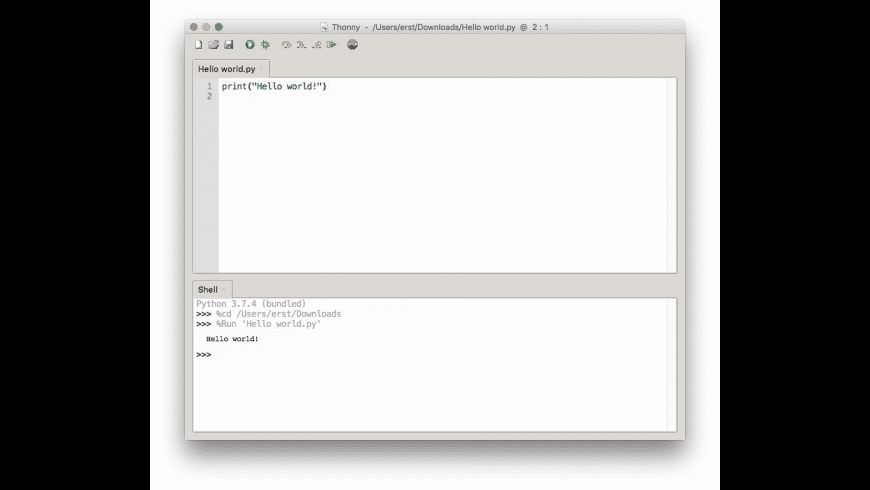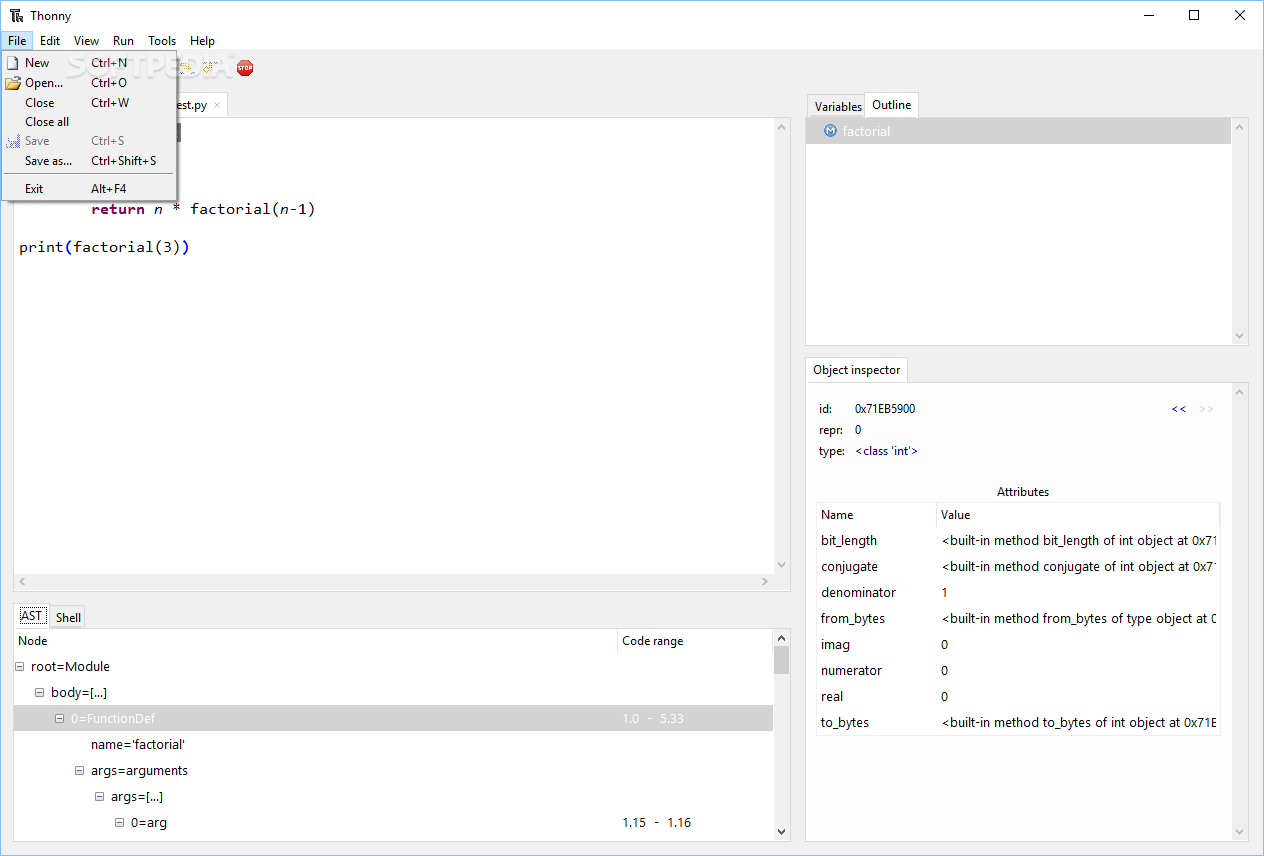

Downloading the FirmwareĪfter you start up Thonny there will be a button in the lower right corner.Īfter you click on it you will see the following: You can save a python file in Thonny to either the Pico or to your local computer's file system.įirst stop execution of any program you are running. Pin pull modes are: Pin.PULL_UP, Pin.PULL_DOWNĬTRL-D - on a blank line, do a soft reset of the boardĬTRL-E - on a blank line, enter paste modeįor further help on a specific object, type help(obj)įor a list of available modules, type help('modules')

Pin IO modes are: Pin.IN, Pin.OUT, Pin.ALT Pins are numbered 0-29, and 26-29 have ADC capabilities
#Thonny download software#
Machine.Timer(freq, callback) - create a software timer objectĮg: machine.Timer(freq=1, callback=lambda t:print(t)) Methods: read(nbytes, write=0x00), write(buf), write_readinto(wr_buf, rd_buf) Machine.SPI(id, baudrate=1000000) - create an SPI object (id=0,1)

Readfrom_mem(addr, memaddr, arg), writeto_mem(addr, memaddr, arg) Methods: readfrom(addr, buf, stop=True), writeto(addr, buf, stop=True) Machine.I2C(id) - create an I2C object (id=0,1) Machine.PWM(pin) - make a PWM object from a pin Machine.ADC(pin) - make an analog object from a pin Methods: init(.), value(), high(), low(), irq(handler) Machine.Pin(pin, m, ) - get a pin and configure it for IO mode m, pull mode p Machine.Pin(pin) - get a pin, eg machine.Pin(0) MicroPython v1.14 on Raspberry Pi Pico with RP2040įor access to the hardware use the 'machine' module.
#Thonny download upgrade#
Upgrading ThonnyĪlthough you can always upgrade Thonny by removing it and reinstalling a new version, on Mac and Linux systems there is an easier method. You can find more tips on getting started with Thonny on the Raspberry Pi website: Make sure you upgrade to the latest version of Thonny if you already have a Thonny installed on your computer.
#Thonny download install#
The best way to install Thonny is to go to the Thonny website an look for the "Download" area for your operating system. We suggest checking this link monthly for updates. For a release history, see the Thonny Release History. There have also been several enhancements since that release. Thonny 3.3.3 () was the first version to support the Raspberry Pi Pico. As students want to do more complex functions such as build automatic deployment scripts other IDEs are more appropriate. We strongly suggest that classes begin with Thonny for the first several weeks. It supports different ways of stepping through the code, step-by-step expression evaluation, detailed visualization of the call stack and a mode for explaining the concepts of references and heap. It has been modified to work well with the Raspberry Pi Pico. A lightweight Python integrated development environment (IDE) that is ideal for beginners writing simple Python programs for first-time users.


 0 kommentar(er)
0 kommentar(er)
